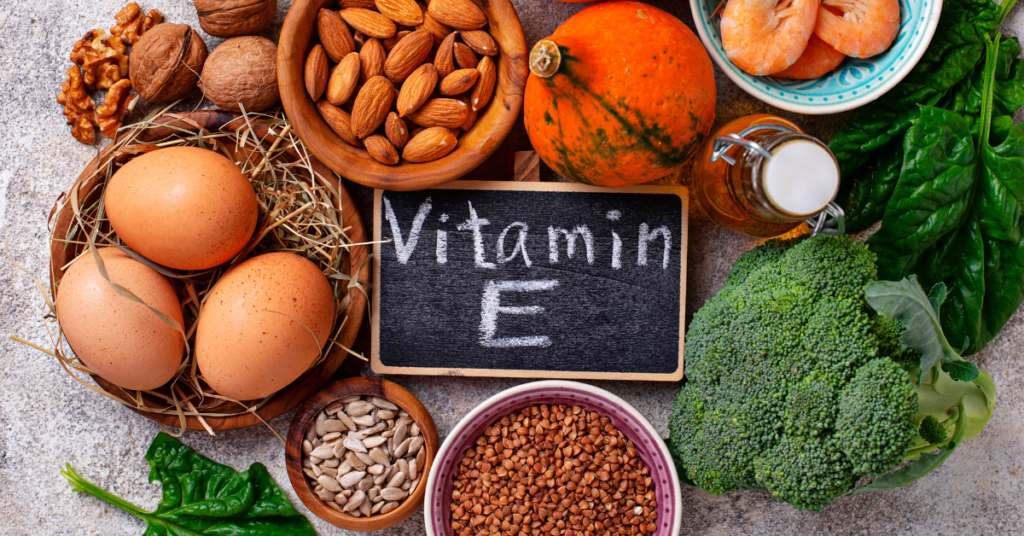The Top 5 Vitamins Backed by Science
In the realm of cardiovascular well-being, it’s essential to rely on solid scientific research when selecting the right vitamins to support a healthy heart. This article delves deep into the intricacies of heart health and unveils the top five vitamins that are proven to bolster your cardiovascular system. By adhering to this comprehensive guide, you can optimize your heart’s performance and minimize the risk of heart disease.
Vitamin D: The Sunshine Vitamin

Vitamin D, often referred to as the “sunshine vitamin,” is a powerhouse of cardiovascular support. This essential nutrient plays a significant role in maintaining heart health by impacting various aspects of cardiovascular function.
- Blood Pressure Regulation: Adequate levels of vitamin D have been associated with lower blood pressure. It helps in relaxing blood vessels, which in turn reduces the strain on the heart and decreases the risk of hypertension.
- Inflammation Reduction: Vitamin D acts as an anti-inflammatory agent, preventing inflammation within the arteries. Reduced inflammation is crucial for maintaining the integrity of blood vessels and preventing the buildup of arterial plaque.
- Heart Function Optimization: Perhaps one of the most remarkable attributes of vitamin D is its ability to enhance overall heart function. By maintaining optimal vitamin D levels, you can ensure that your heart operates at its best, pumping blood effectively and reducing the risk of heart disease.
It’s worth noting that the primary source of vitamin D is sunlight. When your skin is exposed to sunlight, it triggers the production of this essential nutrient. However, factors like geographic location, season, and skin tone can influence your ability to synthesize enough vitamin D from sunlight. For those who may struggle to get adequate sun exposure, dietary sources such as fatty fish (salmon, mackerel, and sardines) and fortified dairy products can help. In cases where dietary intake is insufficient, vitamin D supplementation can be a crucial step to maintain optimal levels.
Omega-3 Fatty Acids: The Heart’s Best Friend

Omega-3 fatty acids, though not traditional vitamins, are a cornerstone of heart health. These healthy fats, primarily found in certain foods, offer an array of cardiovascular benefits that can make a significant difference in your heart’s well-being.
- Triglyceride Reduction: Omega-3 fatty acids are renowned for their ability to lower triglyceride levels in the blood. Elevated triglycerides are a risk factor for heart disease, making these fats invaluable in reducing that risk.
- Arrhythmia Prevention: Abnormal heart rhythms, or arrhythmias, can be a significant concern for heart health. Omega-3 fatty acids help stabilize the heart’s electrical activity, reducing the risk of dangerous arrhythmias.
- Inflammation Management: Chronic inflammation is a key contributor to heart disease. Omega-3 fatty acids act as anti-inflammatory agents, reducing inflammation throughout the body, including within the cardiovascular system.
- Blood Vessel Health: These fatty acids also improve blood vessel function, making it easier for blood to flow and reducing the risk of plaque buildup in the arteries.
Incorporating omega-3-rich foods into your diet is an excellent way to boost your heart health. Fatty fish like salmon, mackerel, and sardines are top sources. For those who follow a vegetarian or vegan diet, flaxseeds and walnuts are excellent plant-based options. Additionally, omega-3 supplements can be a practical choice for those who may find it challenging to get enough from their diet.
Vitamin B6: The Heart’s Vital Nutrient

Vitamin B6, a water-soluble vitamin, plays a crucial role in supporting cardiovascular health by impacting various aspects of blood and heart function.
- Red Blood Cell Production: One of its key roles is in the production of red blood cells. These cells are responsible for transporting oxygen throughout the body, ensuring that the heart receives the oxygen it needs to function effectively.
- Homocysteine Regulation: Elevated levels of homocysteine in the blood have been linked to an increased risk of heart disease. Vitamin B6 helps regulate homocysteine levels, thereby reducing the risk associated with elevated homocysteine.
- Neurotransmitter Synthesis: This vitamin is also involved in the production of neurotransmitters, which play a role in the regulation of heart rate and blood pressure.
Rich dietary sources of vitamin B6 include poultry, fish, potatoes, bananas, and chickpeas. While many individuals can meet their B6 requirements through diet, those with specific medical conditions or dietary restrictions may benefit from supplementation to ensure adequate intake.
Vitamin C: The Heart’s Guardian

Vitamin C, also known as ascorbic acid, is a powerful antioxidant that offers significant protection for the heart.
- Antioxidant Properties: Vitamin C acts as an antioxidant, which means it helps neutralize harmful free radicals in the body. These free radicals can damage cells, including those that make up the arterial walls. By preventing oxidative damage, vitamin C safeguards the heart’s arteries.
- Collagen Production: Vitamin C is crucial for the synthesis of collagen, a structural protein that provides strength and elasticity to blood vessels. Healthy blood vessels are essential for efficient blood circulation and overall heart health.
- Disease Prevention: By reducing oxidative stress and supporting collagen production, vitamin C can help protect against the development of atherosclerosis, a condition characterized by the buildup of plaque in the arteries.
Excellent sources of vitamin C include citrus fruits like oranges, strawberries, and kiwis. Additionally, vegetables such as bell peppers, broccoli, and spinach are rich in this vital nutrient. Most individuals can achieve adequate vitamin C intake through a well-balanced diet. However, individuals with specific health conditions or dietary limitations may consider supplementation under the guidance of a healthcare professional.
Vitamin E: The Heart’s Protector

Vitamin E, an antioxidant in its own right, is yet another guardian of heart health. It provides a shield against oxidative stress and offers several additional benefits for cardiovascular well-being.
- Oxidative Stress Prevention: Vitamin E helps protect the heart from oxidative stress, which can damage the arteries and lead to the development of heart disease.
- Blood Clot Prevention: It may also play a role in preventing the formation of blood clots, reducing the risk of thrombosis, a condition that can lead to heart attacks and strokes.
- Blood Flow Improvement: Vitamin E improves overall blood flow by promoting healthy blood vessel function.
Nuts, seeds, spinach, and broccoli are excellent dietary sources of vitamin E. While it is essential to incorporate these foods into your diet, it’s important to note that excessive intake of vitamin E through supplements can have adverse effects on health. Therefore, it is advisable to primarily obtain this vitamin from dietary sources and consult with a healthcare professional before considering supplementation.
In conclusion, these five essential vitamins and nutrients can be your allies in promoting heart health. By integrating them into your daily life, you can reduce the risk of heart disease, improve overall cardiovascular function, and enjoy the benefits of a healthy heart for years to come. Remember to combine these dietary choices with a holistic approach to cardiovascular well-being, including regular exercise, stress management, and consultation with healthcare professionals for personalized guidance.



